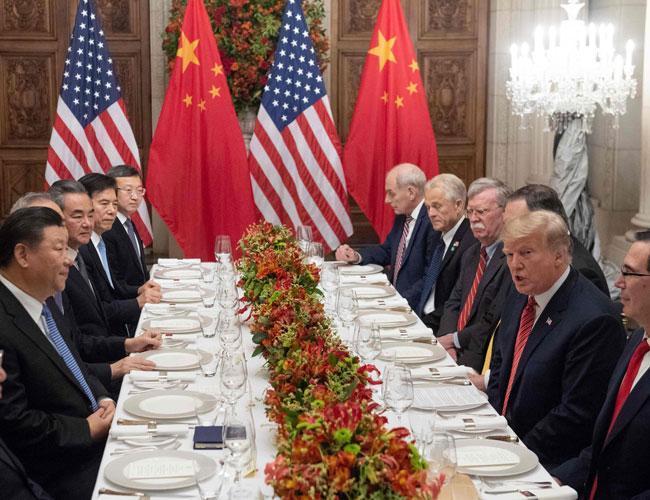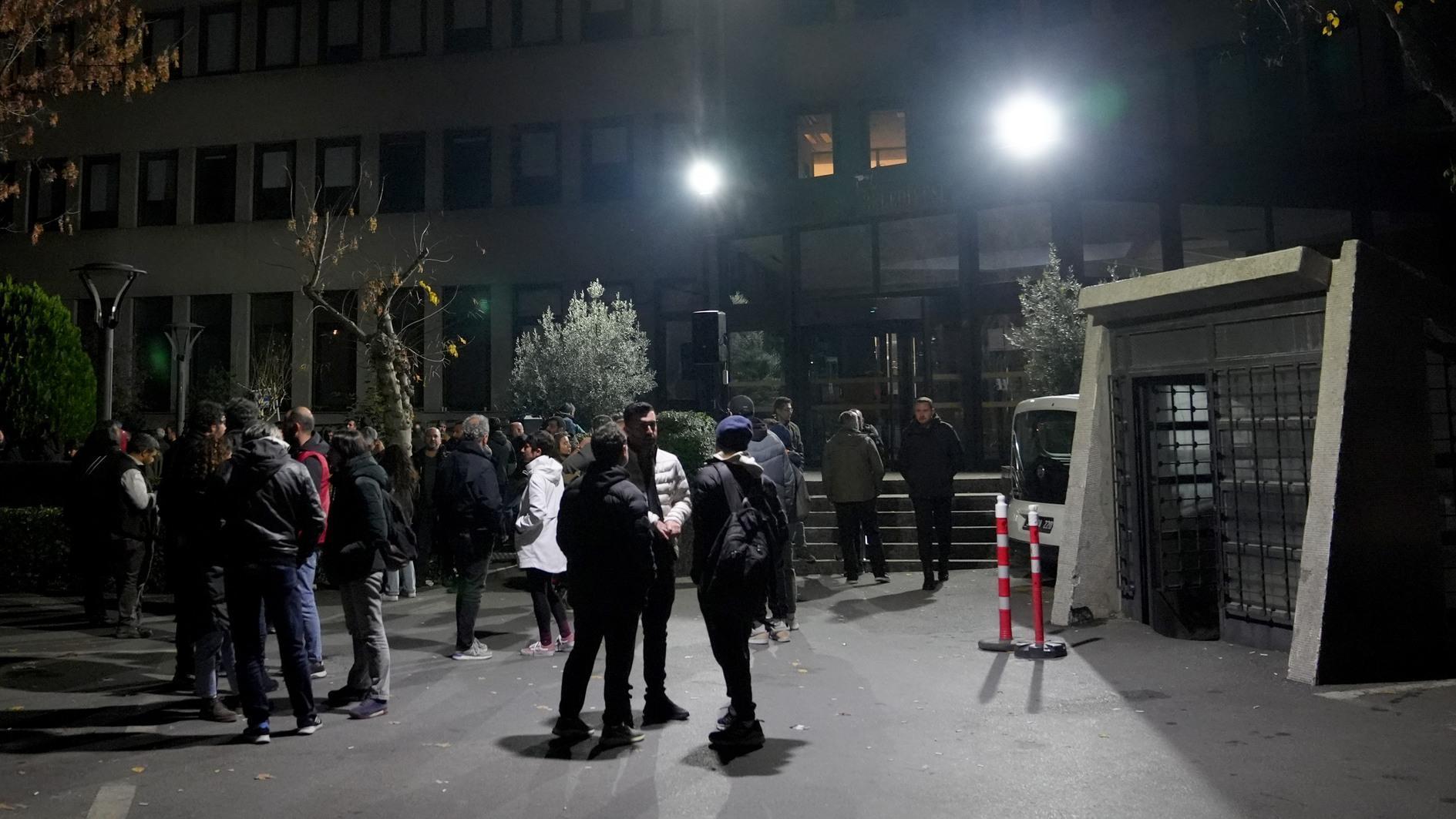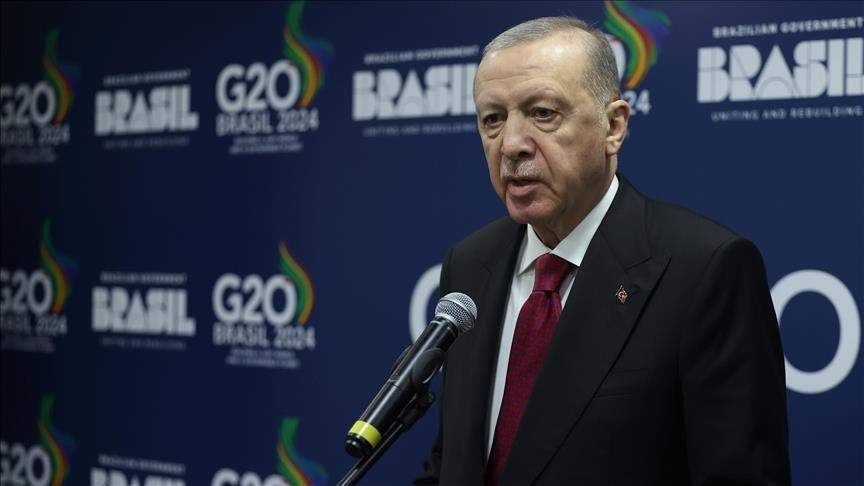China, US declare 90-day halt to new tariffs
BUENOS AIRES – Reuters

China and the United States agreed to halt additional tariffs in a deal that keeps their trade war from escalating as the two sides try again to bridge their differences with fresh talks aimed at reaching an agreement within 90 days.
The White House said on Dec. 1 that President Donald Trump told Chinese President Xi Jinping during high-stakes talks in Argentina that he would not boost tariffs on $200 billion of Chinese goods to 25 percent on Jan. 1 as previously announced.
Beijing for its part agreed to buy an unspecified but "very substantial" amount of agricultural, energy, industrial and other products, the White House said in a statement.
The two sides would also launch new trade talks to address issues including technology transfer, intellectual property, non-tariff barriers, cyber theft and agriculture, it said.
If no deal is reached within 90 days, both parties agreed that the 10 percent tariffs will be raised to 25 percent, the White House said.
On Dec. 2, China's state-run media lauded the "important consensus" reached by the two leaders but did not mention the 90-day deadline.
Trump imposed 10 percent tariffs on $200 billion worth of Chinese goods in September. China responded with its own tariffs.
Trump has also threatened to put tariffs on another $267 billion worth of Chinese imports, as the relationship appeared set to worsen in the weeks ahead of the Argentina meeting.
"I think this is not a breakthrough - it's more of avoiding a breakdown. This is not a worst case outcome but the hard work is ahead of them," said Paul Haenle, Director at the Carnegie-Tsinghua Center in Beijing.
"The Chinese have to come into (the talks) with a sense of urgency," he added.
Trump hails agreement
As part of the deal, China agreed to start purchasing agricultural products from U.S. farmers immediately, the White House said.
Speaking to reporters on Air Force One, Trump hailed his agreement with Xi.
"It's an incredible deal," Trump said. "What I'd be doing is holding back on tariffs. China will be opening up. China will be getting rid of tariffs."
He said under the deal China would buy a "tremendous amount of agricultural and other product" from the United States. "It'll have an incredibly positive impact on farming."
State Councillor Wang Yi, the Chinese government's top diplomat, told reporters in Buenos Aires that the two sides believed the agreement "effectively prevented the expansion of economic frictions between the two countries".
"Facts show that joint interests between China and the United States are greater than the disputes, and the need for cooperation is greater than frictions," he said.
U.S. companies and consumers are bearing part of the cost of the U.S. tariffs on China by paying higher prices for goods, and many companies have increased prices of imported goods.
At the same time, U.S. farmers have been hurt by reduced Chinese imports of soybeans and other products.
China "is open to approving the previously unapproved" deal for U.S. company Qualcomm Inc. to acquire Netherlands-based NXP Semiconductors "should it again be presented," the White House statement said.
In July, Qualcomm - the world's biggest smartphone-chip maker - walked away from a $44 billion deal to buy NXP after failing to secure Chinese regulatory approval, becoming a high-profile victim of the China-U.S. trade dispute.
Qualcomm and NXP did not immediately respond to requests for comment late on Saturday.
‘China compromised more’
Beyond trade, Xi also agreed to designate the drug fentanyl as a controlled substance, the White House said.
For more than a year, Trump has raised concerns about the synthetic opioid being sent from China to the United States, which is facing an epidemic of opioid-related deaths.
Scott Kennedy, a China expert at the Center for Strategic and International Studies in Washington, said the United States appeared to come out slightly ahead in the overall agreement.
"Beijing at best gets a temporary reprieve from additional tariffs, but was unable to get the U.S. to agree to return to 'business as usual'," he said.
"Instead, only the pace of deterioration has changed, not the direction of the relationship," Kennedy added.
The 90-day talks deadline falls just days before China's annual meeting of parliament in the first week of March, a politically sensitive time for Beijing.
Sun Zhe, co-director of the China Initiative at Columbia University, said China might have made greater concessions this time but may be looking for more out of the United States in the coming months.
"I think China compromised more. They bet that the United States would appreciate that China doesn't want to break the relationship even though China was pushed very hard," he said.
"Some Chinese speculate about what compromise the United State can make in the future because China promised a lot and Trump just promised to not raise U.S. tariffs," he added.
















